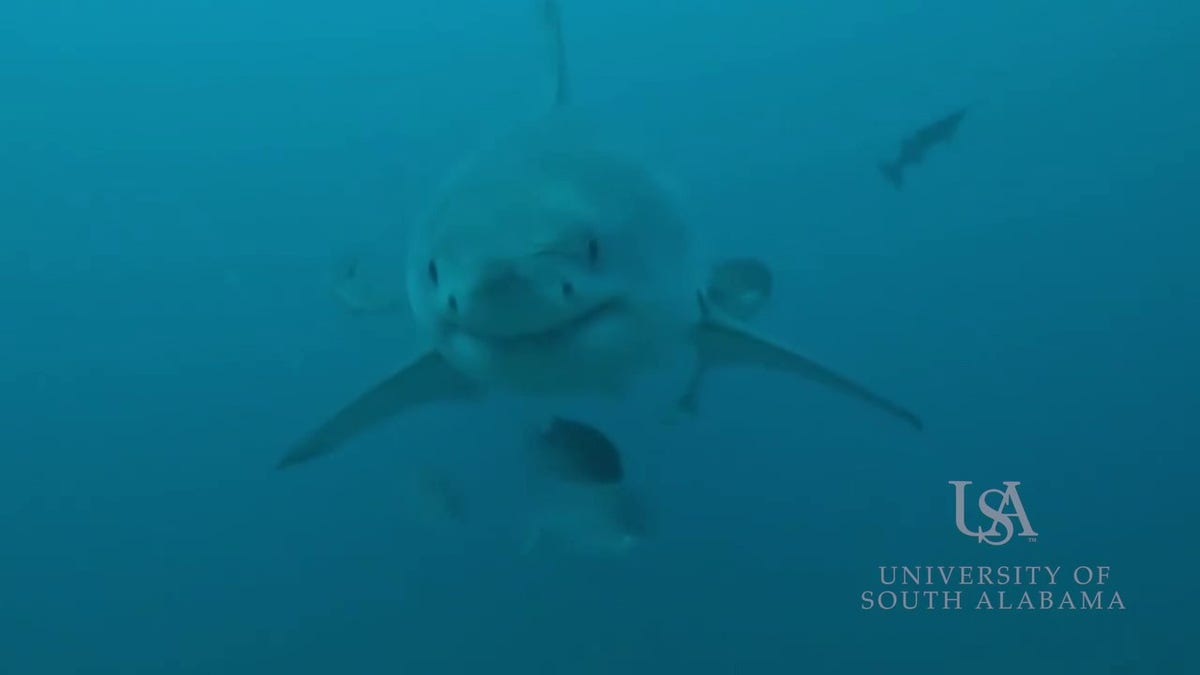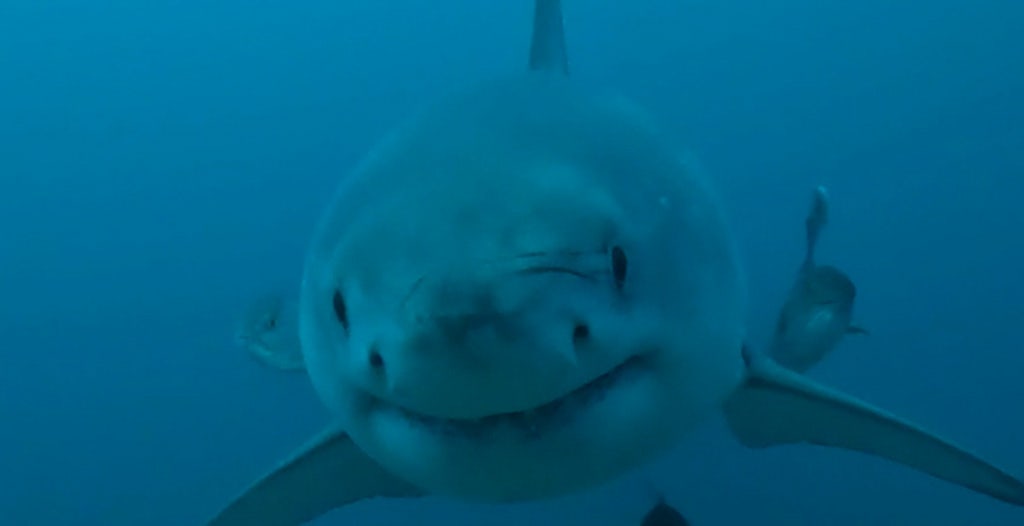A female great white shark has been spotted off the Alabama coast two times in the past few weeks, according to researchers at the University of South Alabama (USA).
Now known as Miss Pawla, named after one of USA’s mascots, the shark is approximately eight feet long and about 15 years old based on her size. The researchers said she won’t reach maturity until at least 30 years old, as white sharks can live more than 50 years.
She was spotted on two separate occasions while researchers were monitoring fish movement near Alabama’s artificial reef zone, according to the university.
The first sighting took place with underwater cameras in mid-April during a survey with researchers from Mississippi State University and Florida’s Fish and Wildlife Institute and the second sighting came ten days later. By May 3, she was no longer seen in the area.

The university said great white sharks are easily identifiable by their unique scarring patterns, typically on the head and fins. (University of South Alabama)
Great white sharks have been reportedly spotted recently in coastal Alabama – one was caught by fishermen and another washed up dead on a Florida Panhandle beach – which leads researchers to believe the species may be more common in the northern Gulf of Mexico than they thought.
White sharks have unique scarring patterns, particularly on the head and fins, which makes them easily identifiable, the university said, and scientists normally name them so they can track their movements.
Miss Pawla has never been recorded before, which allowed the university to name her. Researchers at the school are already tracking a 12-foot tiger shark, named SouthJaw, also after a USA mascot.

Miss Pawla is estimated to be about 15 years old based on her size. (University of South Alabama)
“Alabama has a rich marine ecosystem, and sharks are an important element,” the university said in a news release, adding that white sharks are federally protected and must be released alive if caught.

